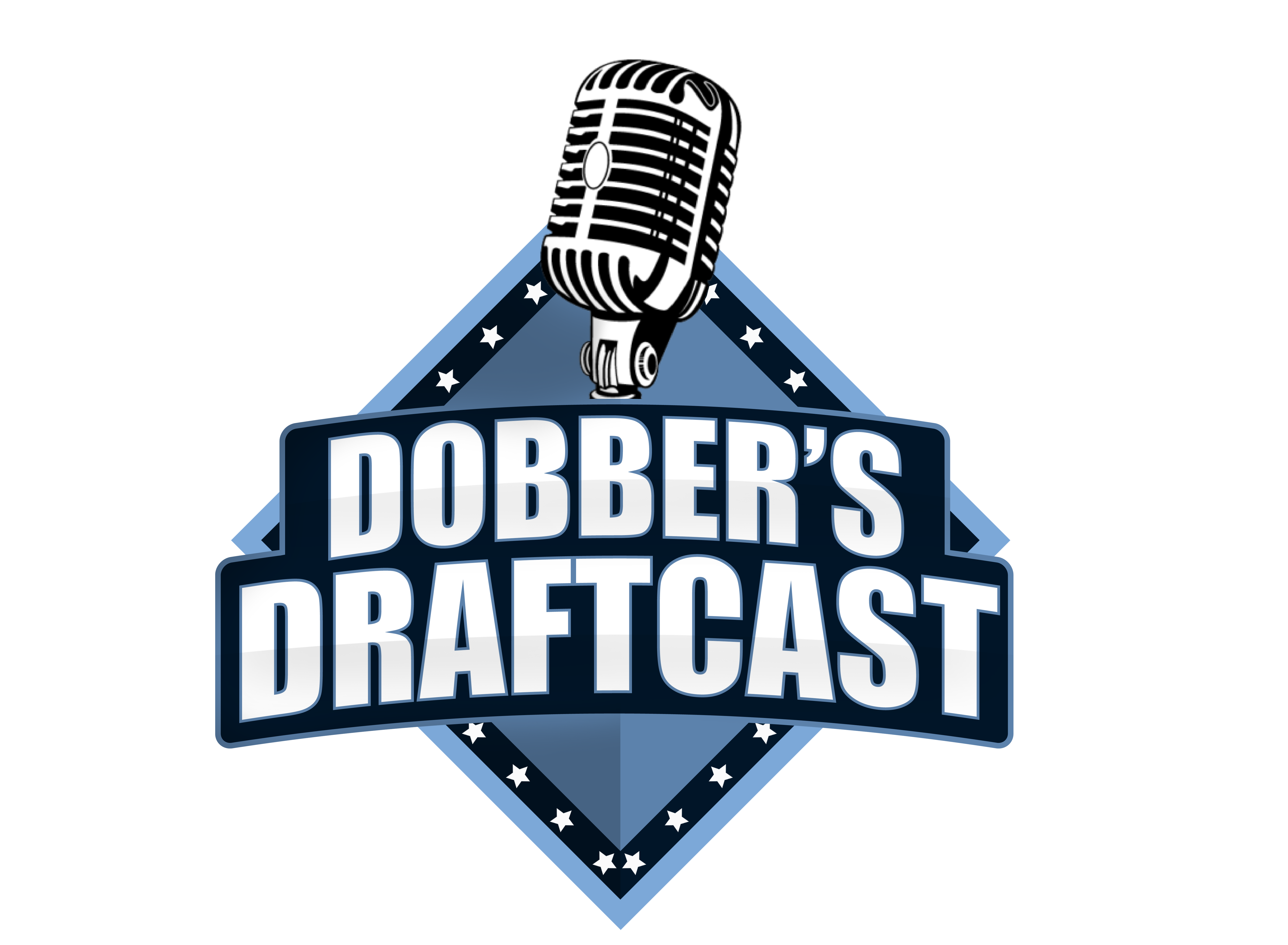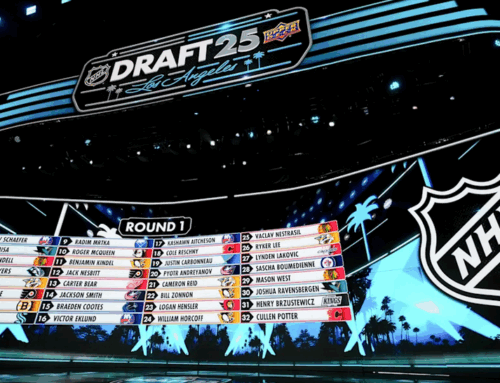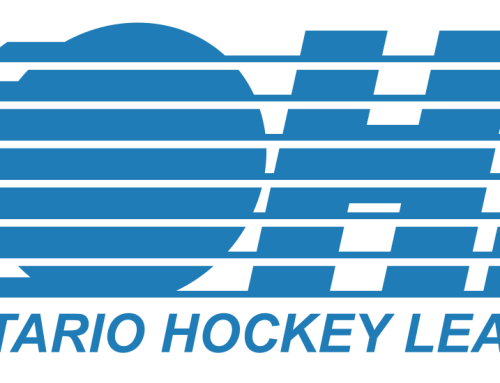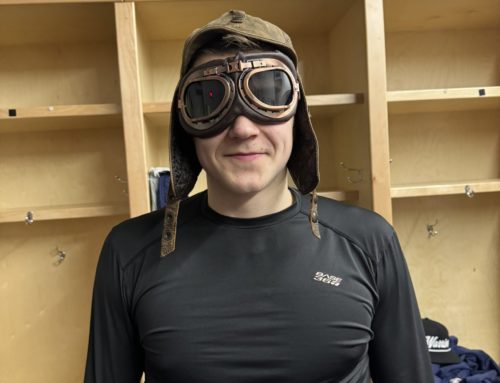Prospect Ramblings: Can World Championship success predict a breakout?
Hayden Soboleski
2017-05-07

***
The IIHF World Championships have begun, giving fans of teams eliminated from NHL Playoffs one more chance to catch their favorite players before the long off-season. Canada is going for the three-peat, after missing out on a medal for five years prior to this run of golds. Our very own Paul Zwambag gave a quick overview of some players he's keeping an eye on earlier this week, and there's plenty of coverage available for readers looking for the more up-to-date scoring info (check out the official website for the tournament here).
One thing I'm always thinking about when these tournaments full of talent happen is whether a successful tournament is an indication of a future breakout in the NHL. Brad Marchand's dominance in the World Cup last summer foreboded his jump from 61 points to 85 in the following campaign. Mark Schiefele's point-per-game effort in the World Cup also ended up with him having his best season yet, jumping from 61 points to 82 points (not a cut-and-paste error, Marchand and Schiefele actually had stat lines that similar!).
But these were World Cup performances only days before the NHL season began, meaning that players could get hot and stay hot, boosting their season total. Do dominant performances in the Spring World Championship mean the same thing? In addition, these players are not considered prospects anymore. Studying them would be intriguing but considering that I'm writing for DobberProspects, I'm going to limit my scope here. Let's see how last year's participants fared:
| Player | 2016 World Championship Pts/game | 2015-16 NHL Pts/game | 2016-17 NHL Pts/game |
| Sam Reinhart (CAN) | 0.40 | 0.53 | 0.59 |
| Max Domi (CAN) | 0.10 | 0.64 | 0.64 |
| Ben Hutton (CAN) | 0.20 | 0.33 | 0.27 |
| Dylan Larkin (USA) | 0.90 | 0.56 | 0.40 |
| Auston Matthews (USA) | 0.90 | – | 0.84 |
| Frank Vatrano (USA) | 0.80 | 0.28 | 0.41 |
| JT Compher (USA) | 0.30 | – | 0.24 |
| Tyler Motte (USA) | 0.30 | – | 0.21 |
| Hudson Fasching (USA) | 0.20 | – | 0.10 |
| Alex Wennberg (SWE) | 1.00 | 0.58 | 0.74 |
| Patrick Laine | 1.20 | – | 0.88 |
| Sebastian Aho (FIN) | 0.70 | – | 0.60 |
| Mikko Rantanen (FIN) | 0.20 | 0 | 0.51 |
So what does this mean?
The above table of numbers can be a little hard to interpret. What I'm looking for is evidence of players having a good tournament, followed by a jump in their NHL numbers. There seem to be two examples of this:
– Alex Wennberg (a 3rd-year NHLer)
– Frank Vatrano (a 2nd-year NHLer)
To counter this hypothesis, let's look for players who had a good tournament, but a decrease in NHL numbers:
– Dylan Larkin (a 2nd-year NHLer)
Larkin was arguably the highest-profile of these three players going into the tournament, and his significant drop-off (although due to other factors in Detroit), certainly puts a hole in the idea that a strong World Champoinship leads to a better next NHL season.
Let's continue filling out this matrix, by seeing who had a bad tournament, but had an increase in NHL numbers:
– Mikko Rantanen (a 2nd-year NHLer, but 1st year was just a tryout)
Finally, who had a bad tournament, and bad NHL numbers:
– Max Domi (a 2nd-year NHLer, who failed to improve on rookie numbers)
In my humble opinion, there seems to be no evidence here to support that having a strong World Championship leads to an improvement in NHLers' performance. It may have played a factor for the players who did see an increase, but there's way too much data in disagreement for this to be considered a trend. I'm sorry to say that if guys like Travis Konecny or Nick Schmaltz or Jack Eichel have huge performances over the next few weeks, I'm probably not going to care on draft day next season.
But what does it mean for rookies?
There's another group that can be isolated from the table above, and that's rookies. How did players fare in the NHL with no previous experience, but after appearing in the World Championships?
Good tournaments and good rookie years:
– Auston Matthews
– Patrick Laine
– Sebastian Aho
Good tournaments and average rookie years:
– JT Compher
– Tyler Motte
– Hudson Fasching
Wait, isn't this an unfair comparison, because heading into the 2016-17 season, the names on the top list were way more hyped than those on the bottom list? It's not unfair if performances like this are the reason the top three names had hype to start out with. And in my opinion, this is exactly the case. These players being able to dominate in tournaments like this are the reason they were top draft picks and the reason we had high expecations. Based on this, I have no problem saying that if a top draft-eligible prospect has a strong World Championship, I'm significantly more confident in their ability to play well in the NHL.
***
***
As always, thank you for reading and best of luck in any playoff pools your picks survived in!
Hayden Soboleski
@soboleskih
LATEST PROFILE UPDATES
LATEST RADIO & DRAFTCASTS
2 Comments
Leave A Comment
You must be logged in to post a comment.







Quick Question Hayden: Where do you think Clayton Keller falls in the “hyped player” list? Do you think him having a good World Championships turns into him having a great, good or average rookie career? Where does he fall: Matthews, Laine, Aho OR Compher, Motte, Fasching OR somewhere in between?
Keller had a hat trick against Denmark on Sunday. Goal today (so far) against Sweden.
I think he’s more of an Aho in this case. Shown to have the skills to be great, and now he’s showing us he can play to a high level. I wouldn’t predict his point totals based on this tournament, but I’m certainly more confident in his ability to break into the NHL next year.